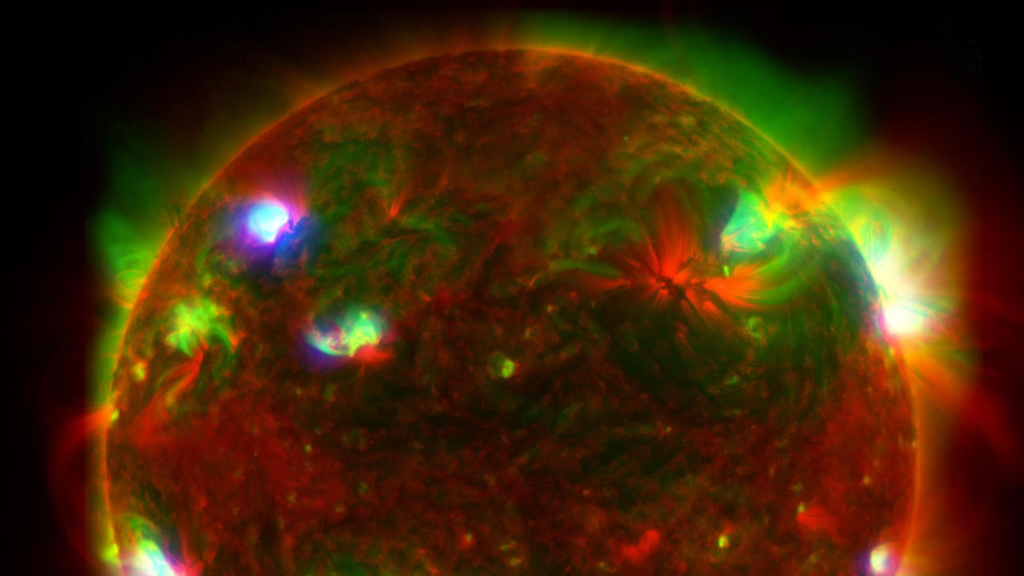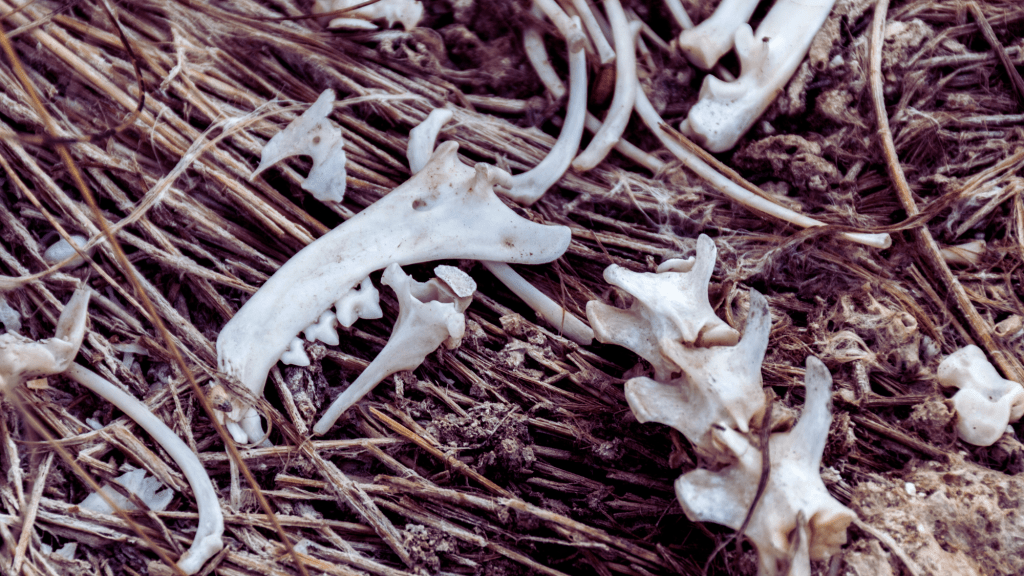144,000,000. That’s roughly the number of land animals killed every day to produce meat, dairy, and eggs for human consumption. It’s a staggering, horrific number. It’s also a number that means billions of more animals are constantly enslaved—many in terrible conditions, suffering throughout their lives, waiting to meet a bloody, often painful death.
No wonder veganism is a quickly-growing worldwide movement. A top priority for vegans is not harming animals. Some of the largest organizations and groups that support or endorse veganism are PETA (People for the Ethical Treatment of Animals), ALF (Animal Liberation Front), and the Humane Society.
Videos by VICE
The problem is, despite veganism catching on worldwide, the slaughter of more and more animals is inevitable because of an expanding world population. Another problem is that even going totally vegan can carry a cost—sometimes one with a higher animal body count and more environmental damage due to the way the farming industrial complex works. (For example, fertilizer for grains—a worldwide staple—can be made partially from meat products.) So what are vegans to do to stop animal suffering and be better stewards of the planet?
We want to strip you of your stomach, your guts, and even your anus, and replace it all with machine parts and bionics. In the future, there will be no eating, drinking, or defecation.
The answer is bewildering—and it probably won’t be satisfying to plant-loving people. Nonetheless, it will inevitably eliminate most human-caused animal deaths. The answer is transhumanism—the movement that aims to replace human biology with synthetic and machine parts.
You see, the most important goal of transhumanism is to try to overcome death with science and technology. Most cellular degeneration—otherwise known as aging and sickness—comes from the failing of cells. That failure is at least partially caused by the daily act of eating and drinking—of putting foreign objects into our bodies which cells have to consume or discard to try to create energy. Paraxdocially, it’s stressful and hard work for cells to endlessly do this just to live. A simple way to eliminate this Sisyphean task—all the steaks, chocolate donuts, bacon breakfasts, and even my favorite, scotch—is to get rid of human reliance on food and drink entirely.
Transhumanists, like myself, want to get rid of it all. We want to strip you of your stomach, your guts, and even your anus—and replace it all with machine parts and bionics. In the future, there will be no eating, drinking, or defecation.
The obvious question: Where will we get energy from if we don’t eat?
To begin with, we’d need a lot less energy to live since eating, food gathering, and meal preparation take a lot of energy too—even if it’s just driving to Taco Bell, Denny’s, or visiting the salad bar at Whole Foods.
How we get energy really depends on what humans evolve into over the next 25-50 years—and a lot of that depends on how artificial intelligence unfolds. I already have friends planning in the next 12 months to implant chips onto their brains so they can commune telepathically with machines. And with experts like scientist Ben Goertzel predicting a machine consciousness being here in as little as 15-20 years, there’s a possibility we’ll be going Matrix-mode shortly after. An uploaded mind will only need electricity—which can easily be made from wind, the Sun, or a hydropower—not plants, animal meat, or even Red Bull.
But wild transhumanist ambitions aside, my guess is most people won’t be ready to upload their minds into machines at least for another next few decades. However, with CRISPR gene editing tech, there are already DIY biohackers trying to splice plant DNA into their bodies so they can photosynthesize energy from the Sun. Of course, whoever figures this out will surely win the Nobel Prize, since they will also be potentially solving world hunger—and possibly saving the over 8000 kids that die globally from starvation or malnutrition every day.

No more food, no more farms. Image: Alfonso Benayas/Flickr
My guess is that scientists will figure out some form of combining photosynthesis with human biology within a decade. And within two decades, it will become something pragmatic that can supplement our food intake—a so-called free lunch by just hanging out in the Sun.
Despite these two decent options, my money is on a third option—the brain implant that tells us we’re satiated, even when our bodies are calorie restricted and yearning for food. Some studies suggest that maximum human longevity is best accomplished by minorly starving ourselves. If this is correct, it might be the best of both worlds, where humans eat dramatically less, but always feel like they’re tummies are full because an implant stimulating our brain makes us feel it. If we take this one step further, maybe we can have our implants make us feel like we’ve just had a huge steak dinner, all the while knowing that cows haven’t been eaten or cruelly slaughtered.
As a US presidential candidate, the reason I’m writing about veganism is I think it’s a great movement (and there’s a #VeganChalkChallenge catching on right now that is fun and I saw in my hometown Mill Valley, California). My love of animals runs deep, and whenever possible, I try not to eat meat myself—mainly because I don’t want to hurt animals or be responsible for their deaths.
In the past, I’ve been on the front lines of the animal rights and preservation movement. For nearly two years, I was a director at a major wildlife organization called WildAid. I worked mostly in Southeast Asia, and our main goal was to stop illegal wildlife poaching. Before that, I was at National Geographic Channel, and in the field I wrote and filmed stories trying to raise awareness for a number of endangered animals.
I want veganism is to win its crusade. And in my opinion, the best way to tackle the crisis of harming animals is precisely how the driverless car manufacturers are treating one of world’s greatest problems: drunk driving. Electric car manufacturers are not asking people to drink less—they are asking them not to drive at all. I think vegans should take a close look at transhumanism and ask if maybe—in 25 years or so—billions of animals around the world will have far better and longer lives because human appetite and eating have literally disappeared.
Zoltan Istvan is a futurist, author of The Transhumanist Wager, and a 2016 US presidential candidate of the Transhumanist Party. He writes an occasional column for Motherboard in which he ruminates on the future beyond human ability.
More
From VICE
-

Photo: Jorge Garc'a /VW Pics/Universal Images Group via Getty Images -

Three-Telescope View of the Sun. Photo: NASA -

Photo: Maria Teresa Tovar Romero / Getty Images -

Photo: grecosvet / Getty Images